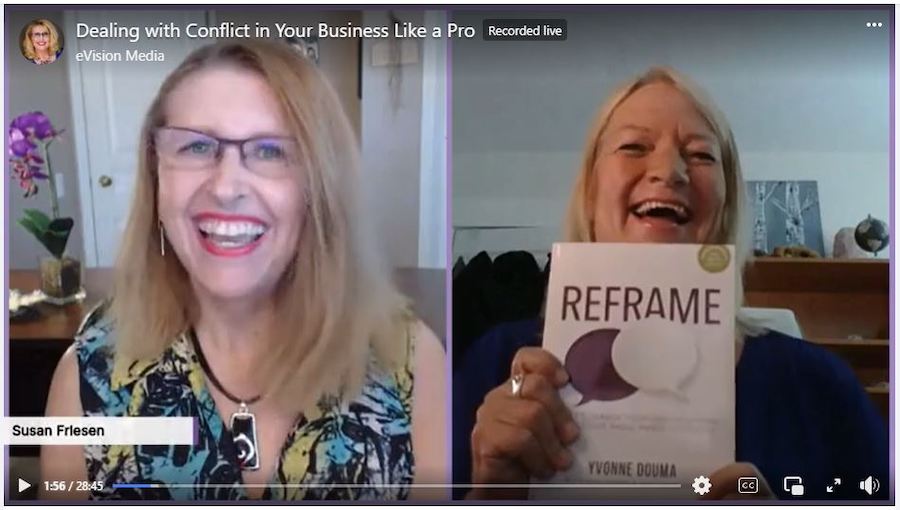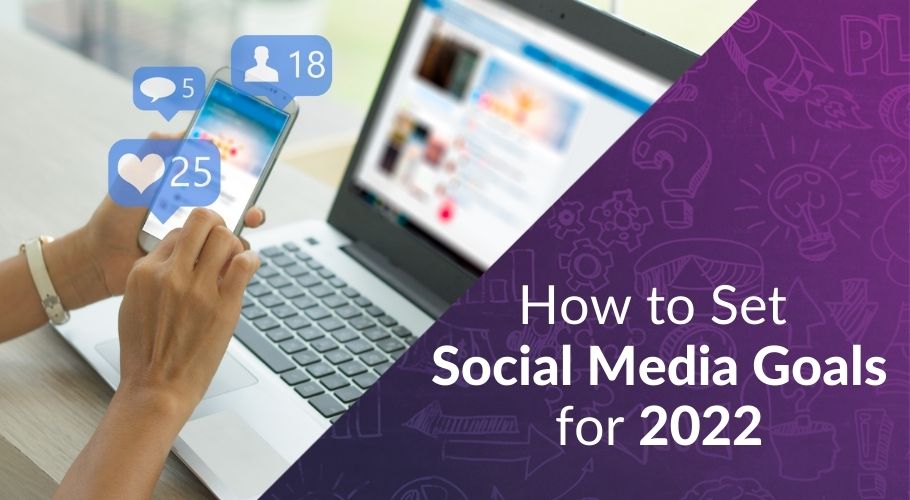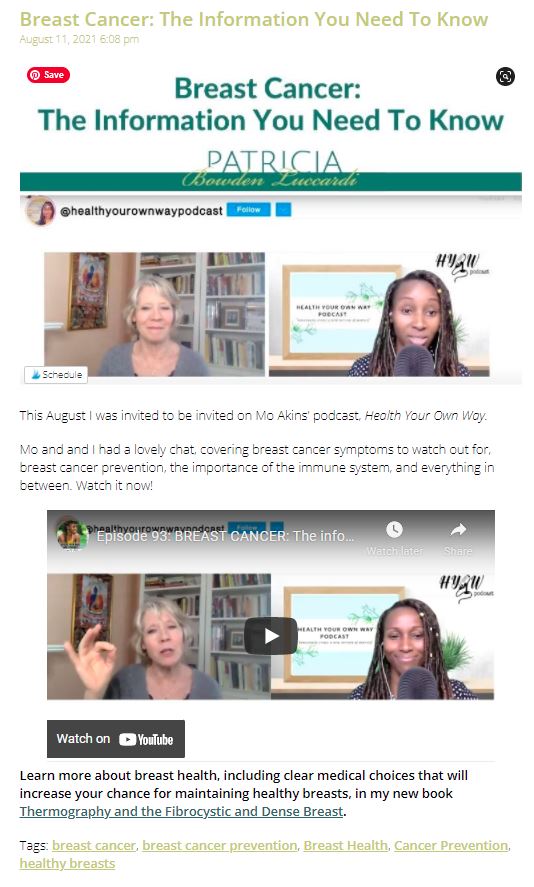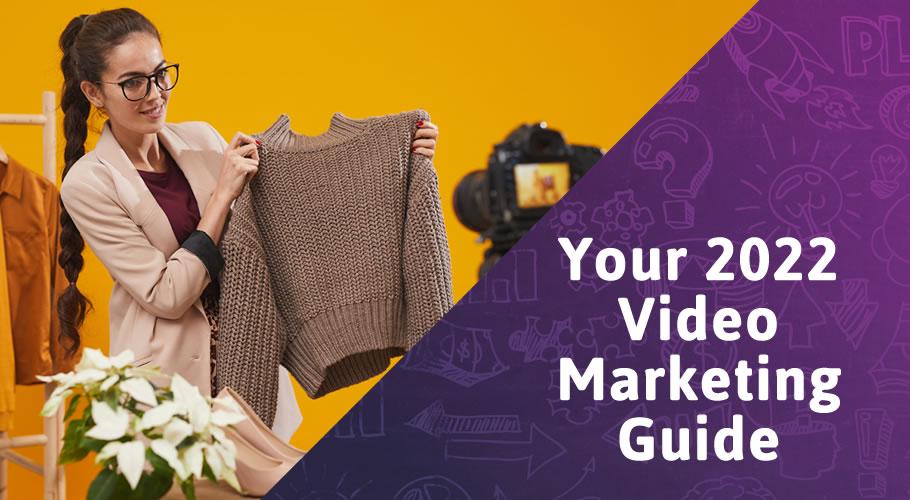Video Content Marketing Trends & Tips
In the past few years we’ve seen a massive increase in video content popping up online, and there’s no sign of it slowing down.
From creating webinars to putting short clips in emails, a video marketing strategy is a must if you want to truly engage with your audience, improve brand awareness, and boost leads and sales.
In fact, 83% of marketers say video helps them with lead generation, and 87% say it has increased traffic to their website.
Some other benefits of video marketing include:
- It’s good for SEO. If your content is compelling enough to attract views and shares, your Google search ranking can improve.
- It’s a timesaver. Creating short video clips can be much quicker than writing an article or blog.
- It’s affordable. It can be more cost-effective to create a short clip vs. producing an ad or a blog.
- It gets attention. People tend to mindlessly scroll through their newsfeeds, but will stop to engage with video.
As we head into 2022, here are three video content marketing trends that I think we can expect to see.
1. Vertical videos will still dominate
Instagram and Snapchat were the first to utilize vertical videos in Stories, and Instagram Television (IGTV) was next.
Now with TikTok firmly rooted in the social media landscape, we can expect to see vertical videos remain popular.
Protip: be sure to shoot your video in vertical mode if you plan to share it in your stories!
2. Live streaming
This refers to anything that is recorded and broadcast in real time. With live streaming, people like to feel like they’re being spoken to directly and authentically.
Live streaming is also a low-cost way to produce collateral. Don’t worry – it doesn’t have to be perfect! What people respond to with live streaming is the authenticity and immediate connection.
So don’t be camera shy. Get out your phone and go live!

I regularly stream live shows over on our Facebook page. I was so proud of our client Yvonne from Douma Leadership for joining us. We even got to plug her new book, REFRAME!
3. In-video shopping
How it works: Users can click on a section of the screen (say, a skirt on a model) and be directed to the link to buy the item.
A recent survey by Brightcove revealed that 23% of consumers overall and 30% of Millennials want links that let them directly purchase a product.
READ: How To Set Social Media Goals for 2022

I’ve created this guide to help you understand how to set social media goals for 2022. This article will be especially helpful if you’ve never taken stock of your marketing campaigns or created objectives.
Now that you’ve got an idea of what’s going to be popular in 2022, here are some ways to incorporate engaging footage into your campaigns.
1. Use video on your landing pages
Let this sink in: video on landing pages can increase conversions by 86%.
Video on your landing pages is also a great way to improve your search ranking, as Google’s algorithms are increasingly prioritizing websites with this type of content.
Since it’s more engaging, video can also lead to more social shares, build trust and awareness, and help reduce bounce rate.

For example, as you can see, Shopify regularly creates new inspiration videos to use on their homepage. These videos explain what they do while also highlighting different customers. Pretty powerful stuff.
2. Blogs and articles
Did you know blog posts can be just as valuable as a landing page? For 2022, think about filming your posts instead of writing them (or do both!), and you’ve easily increased the odds of that info reaching more visitors.
SEO authority Moz, for example, has found that showing a clip with blog images and text increases reach by 3X.

And don’t think that using videos in your blog posts has to be a lot more work. Take this example from our client, Patricia Luccardi. She had a great conversation with podcast host Mo Akins, and wanted to share it with her audience.
Wasn’t a video so much more engaging than a transcript would have been?
3. Emails and newsletters.
Video content is great for your emails and newsletters. Of course, the type of videos you create will depend on your objectives and goals. For example, are you announcing a new product, an event, or a course you want people to sign up for?
You could also use email to give people a sneak peek of longer footage on your website. Once you’ve decided what you’re promoting, you can begin shooting.
Several of the popular email newsletter services like Constant Contact, aWeber and ActiveCampaign make it simple to share what you film by using a screen capture and linking the image to the original content.
That way, a user can just click on the image in the email and be directed to your clip.
Want to learn more about sending great mailouts? Check out eVision Media’s recommended email newsletter providers.
4. Social media platforms.
A solid social media strategy is always essential, and you only need to glance at your Facebook, Twitter, Instagram or LinkedIn feeds (and of course YouTube and Pinterest) to see how big a role video plays for companies.

Don’t be afraid to put yourself out there – especially on social media!
Some go-to formats you could shoot for social media include:
- How-to guides
- Q&As
- Behind-the-scenes glimpses
- Events
- Interviews
- Unboxings (if you have a physical product)
It’s important to remember that each social media platform has rules around how long your digital marketing videos can be. Here’s a quick reference guide:
- Facebook allows you up to 240 minutes (though you probably wouldn’t want to use all that time),
- Twitter provides 2 minutes and 20 seconds.
- Instagram gives you one minute if shared as a post, up to 1 hour as a live or IGTV video and 15 seconds as a story; however, they just announced they are testing 60-second videos without the 15-second break which is now being displayed to some users.
- LinkedIn has a 10-minute limit unless it’s a video ad where up to 30 minutes is allowed.
- Snapchat allows 10 seconds.
- TikTok expanded their video length to be anywhere between 5 seconds and 3 minutes.
- Pinterest has a maximum video length of 15 seconds.
Make sure your videos are optimized for each social media platform. Viewers on Instagram expect different things than those on Twitter, for example.
We can’t possibly cover every platform or video content marketing strategy out there, but I hope this has given you some ideas on how to use this valuable tool in 2022.
Remember: No matter what you’re creating or selling, video is all about storytelling. And now is the time to tell the most authentic and compelling stories you can about your products or services!
If your organization needs help with social media marketing, it’s best to find a qualified service provider who understands the specific nuances of the different social channels and what works best on each. Reach out to see if our team can help.
To your business success,
Susan Friesen
P.S. If you liked the article, you might want to subscribe to our newsletter. We publish tons of valuable content to help you learn more about marketing, and subscribing is the best way to ensure you don’t miss out. Additionally, if you’d like to learn more about building a search engine optimized website, click here for our free website guide.







